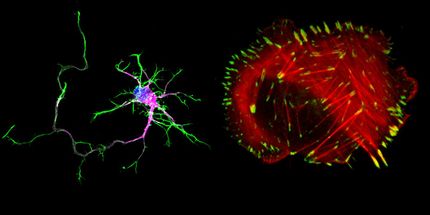Genetic Discovery Unlocks Cause of a Common Form of Heart Disease
Heart Institute Research Expected to Fuel New Therapies for Atrial Fibrillation
Advertisement
Research at the University of Ottawa Heart Institute has revealed that one of the most common forms of heart disease - atrial fibrillation (AF) - is caused by a genetic mutation that occurs during in-utero development. The landmark discovery provides a fresh view of how common diseases may develop and is expected to fuel targeted therapies that help eliminate or prevent AF, which affects millions of North Americans and is responsible for more than a third of all strokes. Details of the discovery are being reported in The New England Journal of medicine (vol. 354, No. 25, pp. 2637-2744). The work has been led by the Heart Institute's Dr. Michael Gollob, a clinical arrhythmia specialist and geneticist who heads the Arrhythmia Research Lab affiliated with the Institute's Canadian Cardiovascular genetics Centre(TM).
Atrial Fibrillation is the most common form of cardiac arrhythmia (irregular beat). AF is a rapid, irregular fluttering of the heart's beat caused by random electrical discharges. Instead of pumping effectively, the condition can allow blood to pool and clot in the heart, and sometimes can trigger a stroke. It is known that defective genes can be inherited and can lead to familial disease. However, it has not been well established that mutations during in-utero development (somatic mutation) can also trigger disease. Noting that cases of familial AF are rare, the researchers hypothesized that cases of AF for which there is no obvious cause (idiopathic) might be due to a somatic mutation confined to the heart tissue.
Dr. Gollob and colleagues focused on a gene (GJA5) which makes a protein known as Connexin 40. The protein is specific to the atrial tissue of the heart and plays a crucial role in how electrical impulses are conducted. They discovered genetic mutations in the Connexin 40 gene in AF patients. Researchers proved the disease was tissue-specific and not present in all body cells by detecting the mutation only in the heart tissue and not in the blood cells of affected patients.
Currently, AF is treated with medications that do not specifically target the Connexin 40 protein. A mechanical procedure called catheter ablation is also employed but it is invasive and significant complications can arise, including stroke and death. By unlocking the mechanism responsible for AF, it is expected that novel drug treatments that target Connexin 40 will be developed to modify or control the disease.

























































